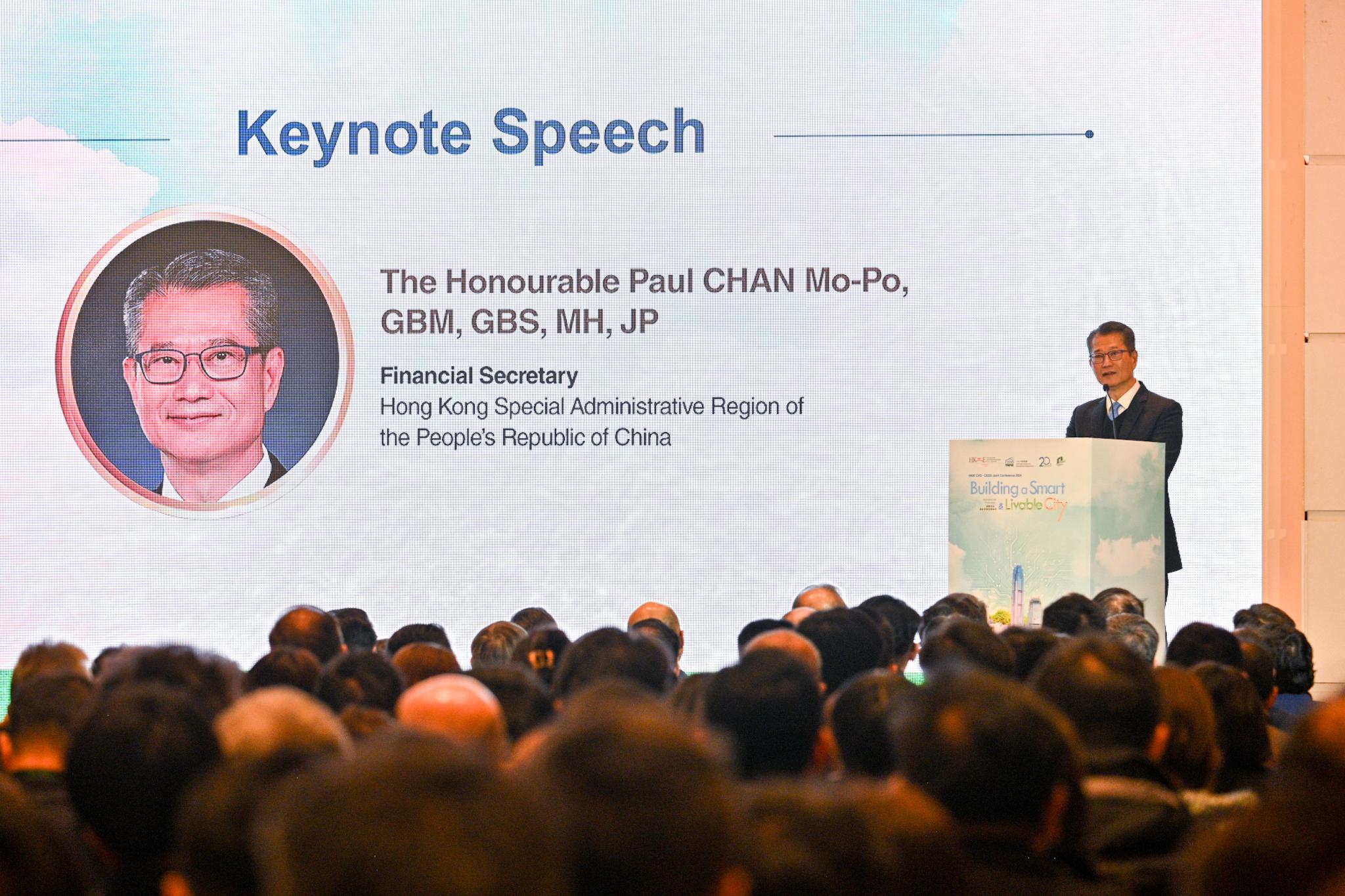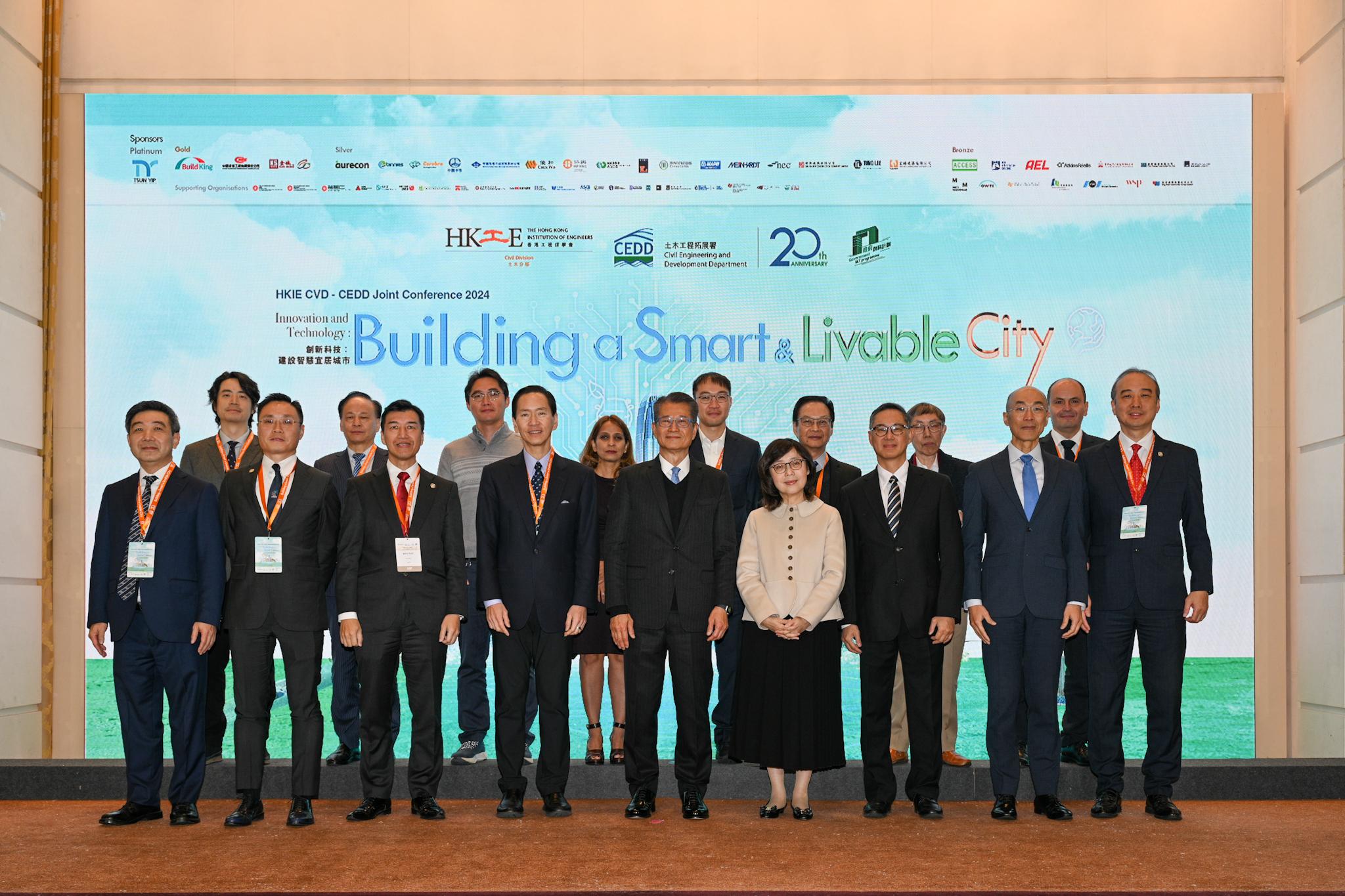Speech by FS at Asian Financial Forum Keynote Luncheon (English only)
Following is the speech by the Financial Secretary, Mr Paul Chan, at the Asian Financial Forum Keynote Luncheon today (January 24):
Professor Jeffrey Sachs (President of the UN Sustainable Development Solutions Network), Ronnie (Chair of Hang Lung Properties Limited, Mr Ronnie Chan), Mr Wu Bo (President, Chief Financial Officer and Member of the Management Committee of China International Capital Corporation Limited), Honourable Ministers and senior officials from around the world, ladies and gentlemen,
Good afternoon to you all. Welcome the luncheon of the 17th Asian Financial Forum.
And a warm welcome to Professor Jeffrey Sachs, our luncheon keynote speaker. We are honoured to have you with us today.
Professor Sachs is President of the UN Sustainable Development Solutions Network and a global leader in sustainable development. An acclaimed economist, scholar and strategist, Professor Sachs has made outstanding contributions to addressing global challenges and achieving sustainable development. His wide-ranging efforts include ending extreme poverty, fighting climate change, reinforcing global co-operation and governance, and much more.
I know we all look forward to his address after lunch. He will speak about responsible capitalism and how it can shape sustainable development.
The Bumpy Path to Sustainable Development
Sustainable development, it is fair to say, is embraced by countries all over the world. Achieving it, however, is getting increasingly difficult. As the UN Sustainable Development Report 2023 puts it, at the halfway point of the 2030 Agenda, the world is far-off track in achieving sustainable development goals.
We certainly face multiple crises. They include the lasting impact of the pandemic on low-income and lower middle-income countries, the fiscal space of the which for spending on infrastructure, health and social programmes has been severely constrained. Wars and conflicts have resulted in widespread humanitarian crises. Geopolitical tensions and economic fragmentation disrupt normal trade, investments and innovation. They hamper global economic growth and, in some cases, hinder climate action.
Nevertheless, we are a global community with a shared future. In a world characterised by a high degree of interconnectedness and interdependence, we know that events in one part of the world can cause rippling, and crippling, effects elsewhere in the world.
Consider climate change, or conflicts that disrupt regional supply chains and ramp up inflation. If we do not work together, the sorry state others contend with will one day become ours as well. In short, it is paramount that we all play our part in working together towards sustainable development.
This reality is at the heart of our country's development agenda. It was highlighted by President Xi at the APEC Economic Leaders' Summit in November, when he said that sustainable development is the "golden key" to solving global problems, and that countries should work together to accelerate the UN 2030 Agenda for Sustainable Development. Over the years, China has been one of the biggest contributors to the eradication of poverty, which is the UN's No. 1 sustainable development goal. And in the pursuit of high-quality development, which is high on the agenda of the Chinese Government, much emphasis has been focused on promoting the green, low-carbon transformation of the economy and the society. China is rapidly realising its "3060" target. For example, the production of electric vehicles on the Mainland last year reached more than eight million.
Internationally, China has pledged to deepen co-operation in infrastructure, energy, transportation and many other fields. It also supports the capacity building of developing countries by providing the funding and other technical assistance.
Hong Kong's Contributions
As for Hong Kong, we are an active contributor to global sustainable development. Our role, as part of China, is to serve as a major financial and trade centre connecting markets, investors and capital. Under the "one country, two systems" principle, we continue to practise common law. Our business rules align with the best international practices and standards, and we embrace the free movement of capital, goods, information and people.
Allow me now to highlight a few points that reflect our stance and actions on global sustainable development, from the economic and financial perspective.
First, we believe that economic progress is central to achieving sustainable development. Only by growing the economic pie can we have the resources and capacity to address some of humanity's most pressing issues. Over the past few decades, the power of free trade and competition under a rules-based multilateral system has been nothing short of remarkable. The flow of goods and capital has unleashed immense productivity worldwide, raising the incomes and living standards of billions of people. That includes, let me add, more than a billion people lifted out of extreme poverty. But the current global upheaval, and talk and actions of "de-risking" and "friend-shoring" since the pandemic now threaten what we have achieved. And we will all be worse off if we allow these emerging trends to take root.
That's why Hong Kong stands firm against protectionism and roadblocks to trade and investment. We are firmly committed to multilateralism, to free trade, and to reducing trade barriers. We are a staunch supporter of the rules-based multilateral trading system, with the World Trade Organization as governing institution.
We will support efforts to promote multilateral trade at WTO's 13th Ministerial Conference next month, particularly in restoring a well-functioning dispute-settlement system as soon as possible.
Second, we are all well-positioned to support climate action and green transition in the Asian region and around the world. Massive funding is needed for green transformation, with estimates suggesting that more than US$66 trillion will be required in Asia alone over the next three decades. As an international financial centre, we are Asia's leader in green investment and financing. A few figures make that clear: in 2022, total green and sustainable debt arranged in Hong Kong, including bonds and loans, rose over 40 per cent, year on year, to more than US$80 billion. Our bond volume captured about one-third of the entire Asian market. At the end of September, Hong Kong was home to more than 200 authorised ESG funds, with total assets under management of about US$160 billion, up 28 per cent, year on year.
Volume aside, we are committed to building a green financial system that meets the best international standards. And we are moving apace, whether in establishing voluntary carbon markets, facilitating green certification or aligning standards. For instance, we are now working to adopt the International Financial Reporting Standards for our financial services.
And we do more than follow the rules. We are making our voice heard in green standard setting by participating in institutions like the IOSCO (International Organization of Securities Commissions).
Beyond finance, Hong Kong has gathered some 200 green tech firms, some of them already expanding their products and services to ASEAN and Middle East markets, offering innovative green solutions to governments and companies alike.
Third, we can unleash the potential of fintech as a tool for good. In both developed and developing countries, fintech is providing solutions that enables affordable financial services, empowering businesses and individuals and enhance financial inclusion. In some cases, fintech helps countries and regions achieve leapfrogging progress.
Hong Kong is a regional fintech hub, home to more than 1 000 fintech firms. They offer a diverse range of services, from virtual banks and insurance companies to e-payment and digital-asset developers. Some of their innovations are making a decided difference, in Hong Kong and elsewhere. For example, one local tech company uses blockchain and IoT technology to monitor the health and growth of livestock enabling them to be used as collateral. Some others use AI to develop credit-risk models that help SMEs obtain loans.
Closing Remarks
Ladies and gentlemen, before I close, allow me to emphasise the most important element in striving for a more sustainable future, in addressing such complex challenges as poverty, climate change, global health and inclusiveness: what we need, above all, is collective action and collaboration. In one word: co-operation.
In working together, there is nothing we can't accomplish. Of that, I am confident.
I wish you all a rewarding two days at the Asian Financial Forum and the best of sustainable business and health in 2024.
Thank you.

